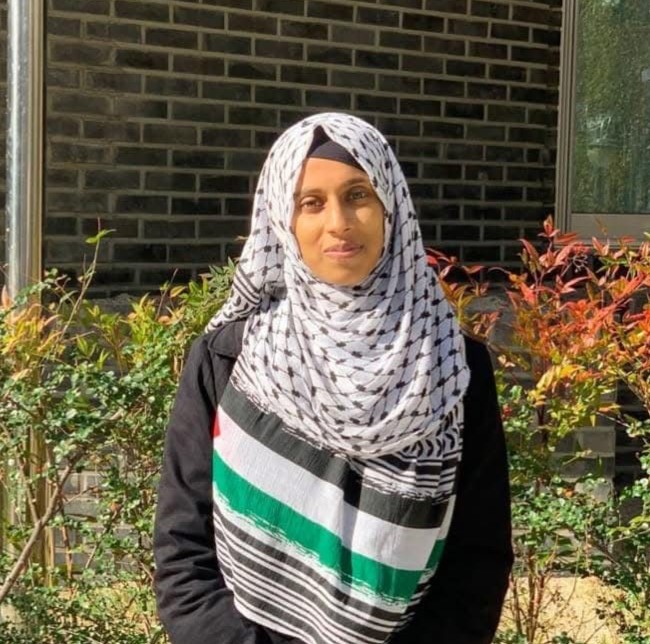Parallels of resistance: Reflecting on Bangladesh's July revolution and the Gwangju uprising in South Korea
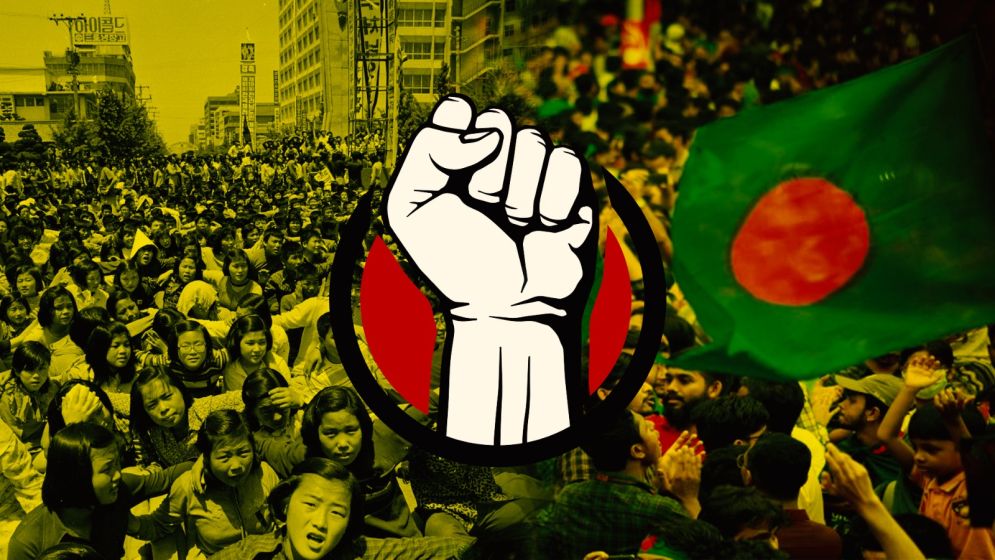
The July Revolution of 2024 was a pivotal moment in Bangladesh's history, a unified struggle for freedom, justice, and democracy that transcended social, economic, and gender barriers.
Students, workers, women, and marginalized communities united against oppression, demanding an end to autocratic rule and a future built on dignity, equality, and human rights.
The streets of Dhaka, Chattagram, and other cities became the stage for a nationwide uprising, echoing with calls for justice and change.
The courage and resilience of those who participated, from all walks of life, redefined the national spirit and challenged the limits of what was possible in the face of adversity.
As a university student and female coordinator at the forefront of this movement, I was deeply involved in organizing protests and coordinating efforts, enduring the horrors of the July Massacre.
I stood alongside thousands of others, witnessing the brutality of a regime determined to suppress our aspirations. However, our collective strength and unwavering belief in democracy ultimately led to the downfall of the oppressive regime.
The revolution's victory came at a high price, with the scars of the July Massacre forever etched in the memories of those who fought and survived.
Yet, its impact is profound, shaping conversations about the future and inspiring hope for a Bangladesh free from fear and injustice.
In the aftermath, I traveled to South Korea, drawn to the Gwangju Uprising of 1980, another democratic struggle marked by violence, a yearning for freedom, and an unwavering pursuit of justice.
Walking the streets of Gwangju, I felt a deep connection to their pain, perseverance, and hope, mirroring our own experiences in Bangladesh.
My time in Korea transcended geographical boundaries, becoming a profound personal journey into the nature of resilience, healing, and solidarity.
Witnessing their struggle mirrored our own experiences in Bangladesh: the sacrifices, the losses, and the unwavering spirit that drove us onward.
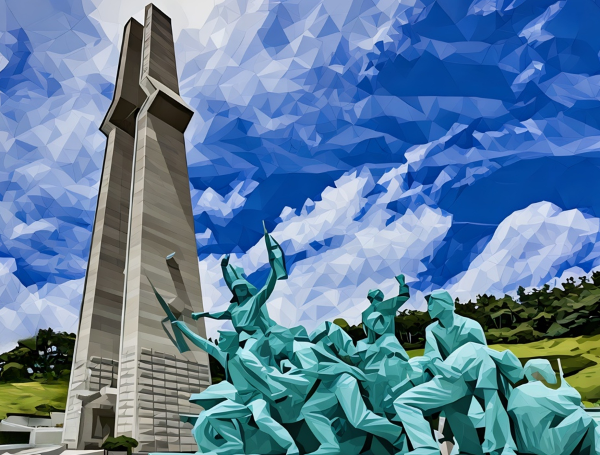
Reflections on sacrifice, democracy, and shared struggles
My visit to the May 18 National Cemetery in Gwangju, South Korea, left me with emotions that are hard to put into words.
As I set foot on this hallowed ground, I was enveloped by a profound sense of history, as though the very air carried the weight of past struggles.
This was no ordinary cemetery—it stood as a living monument to sacrifice, a place where the echoes of past struggles still resonate. Every gravestone was more than just a marker of death; it symbolized unfulfilled dreams, lives lost in the fight for freedom.
The May 18 National Cemetery is a solemn tribute to those who gave their lives during the Gwangju Uprising of 1980, a pivotal moment in South Korea’s battle for democracy.
As I walked among the rows of graves, I was struck by the sobering reminder of the human cost of liberty—so many lives lost in the hope of a better future, not only for South Korea but for the world.
Inside the May 18 Memorial Monument Hall, I was drawn to the portraits of the fallen. These were not mere photographs but the faces of hope, ambition, and quiet dreams from those who dared to stand against oppression.
Each portrait seemed to carry a story—an unfulfilled promise of a future that would never be realized. As I stood before them, it felt as though the eyes of these martyrs were meeting mine, silently urging me to remember the sacrifices they made for democracy.
There was a collective weight in their gaze, a shared responsibility to carry their legacy forward.
Each name etched into the stone felt like a bridge connecting their sacrifice to the struggles I had witnessed in Bangladesh. The longer I stood there, the more I realized how deeply intertwined our revolutions were, how the fight for freedom transcends borders and time.
Before me stood a monumental bronze statue, symbolizing both armed resistance and the pursuit of peace. Its quiet strength radiated power, not just as a tribute to South Korea’s resilience, but as a symbol for all who continue to fight for justice in the face of tyranny.
As I stood there, I couldn't help but think of the countless brave souls from our own July Revolution in Bangladesh.
Though our struggles were shaped by different circumstances, the essence of resistance—the courage to defy oppressive forces—was the same.
It became clear to me just how important it is for us, in Bangladesh, to create spaces that honor our martyrs, to preserve their legacies, and ensure their sacrifices are never forgotten.
These heroes—whether in Gwangju or Dhaka—have given us the ultimate gift: the freedom to shape our own futures.
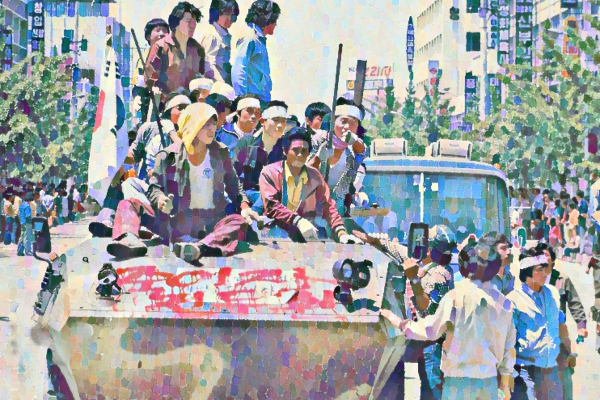
A visit to the May 18 archives
The May 18 Archives in Gwangju also made a profound and lasting impression on me. As I walked through the halls, I was struck by the meticulous care with which every photograph, testimony, and document from the Gwangju Uprising had been preserved.
It served as a powerful reminder of how South Korea, despite enduring immense trauma, has faced its past with honesty and integrity, ensuring that the stories of those who fought for democracy will never be forgotten.
One photograph, in particular, deeply affected me—a mother holding the lifeless body of her child.
It was an image that spoke volumes, stirring memories of the mothers in Bangladesh who had lost their children during the July Massacre.
What stood out most about the May 18 Archives was the sincerity with which the people of Gwangju have preserved their truth.
In the wake of the uprising, South Korea established a Fact-Finding Committee to investigate the atrocities and document the events, ensuring that the truth would be known and that accountability would be pursued.
The records in the archive are more than just historical accounts; they are powerful tools in the fight against denial, ensuring that the sacrifices made by the people of Gwangju cannot be erased or distorted, no matter the efforts to do so.
During a conversation with one of the archivists, I was told, “Without truth, there is no justice. And without justice, the struggle remains incomplete.”
Those words resonated deeply with me, reflecting the very essence of the struggle we face in Bangladesh. Truth is the foundation of justice, and without it, the fight for freedom and dignity remains unfulfilled.
The commitment to preserving the truth in Gwangju was not merely about safeguarding history—it was a moral duty, a promise to future generations that they would never forget the sacrifices made for democracy.
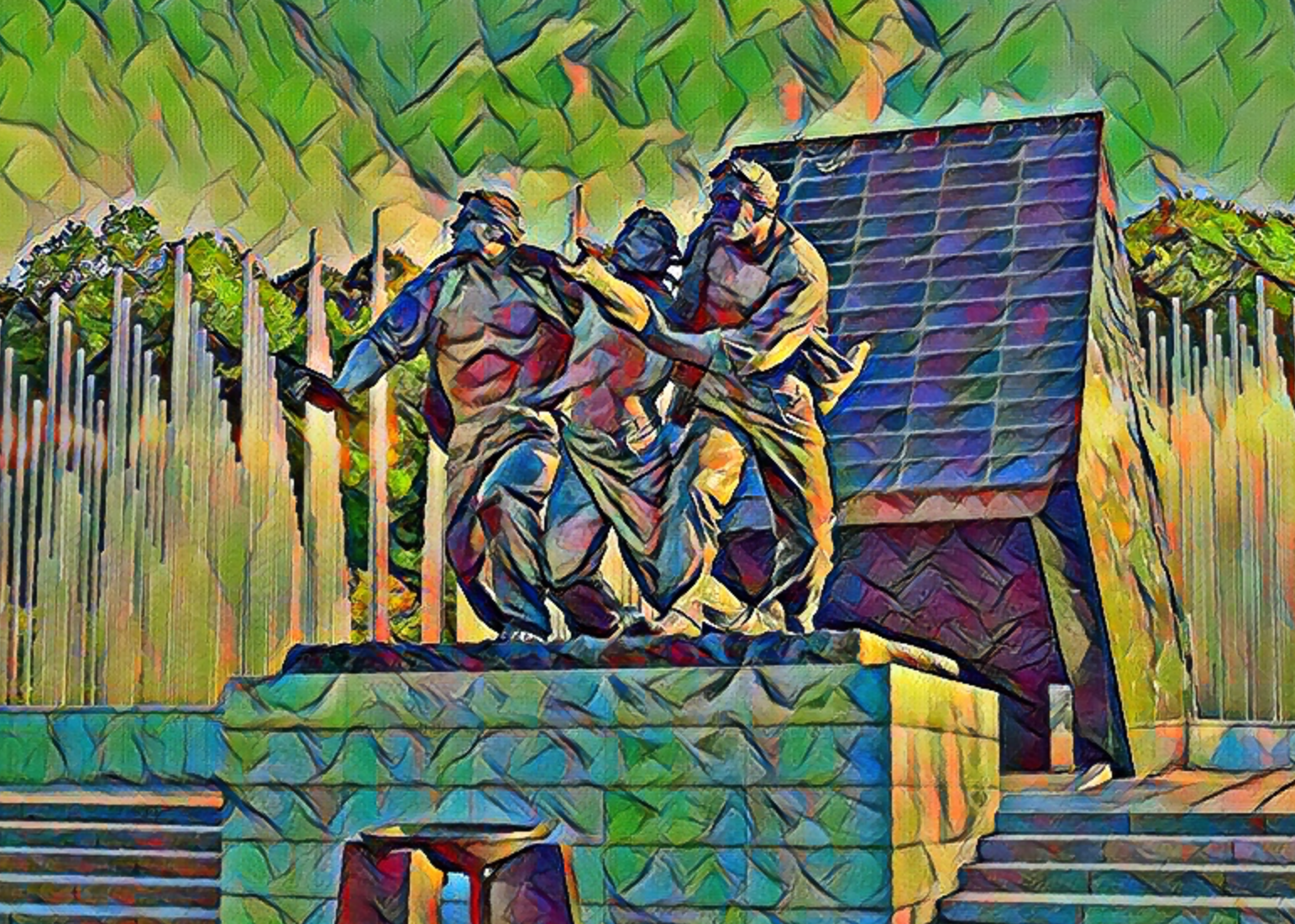
A journey through South Korea’s sites of memory
Visiting the Namyeong-dong Democracy Museum was one of the most emotional and profound moments of my journey through South Korea.
Once a notorious site of torture and oppression under the military dictatorship, the museum now stands as a powerful symbol of transformation—a space not only for learning and reflection but also a living testament to the dangers of unchecked power.
As I moved through the rooms, I could almost feel the weight of history in the air. The walls seemed to echo with the stories of political prisoners who endured torture for their beliefs, and the silent cries of students who sacrificed everything in the fight for democracy.
The exhibits—photographs, testimonies, and artifacts—brought to life the suffering of those who lived through this dark period.
It was haunting, yet it also sparked a sense of hope. South Korea’s willingness to confront its painful past, to honor the victims instead of erasing their stories, reflects a resilience and strength that I hope we, too, can cultivate in Bangladesh.
By transforming a place of suffering into one of education and remembrance, South Korea demonstrated remarkable courage.
The stories of those who suffered under oppressive regimes were difficult to hear, but they also highlighted the incredible resilience of the human spirit.
One story that deeply moved me was that of a survivor of the Gwangju Uprising, who endured unimaginable torture at the hands of the military dictatorship.
For years, he carried the weight of trauma, struggling to move past the physical and psychological scars. But with therapy and care, he gradually rebuilt his life, finding solace and a sense of peace.
This story resonated with me as I thought of the survivors in Bangladesh—those who were blinded, maimed, or emotionally scarred during the July Massacre.
Like the man in Gwangju, they bear the weight of violence and loss, and many have not had the support or means to heal.
This experience made me realize a critical gap in Bangladesh’s own recovery journey. We need institutions that offer not just medical care but also psychological support for victims of violence.
Survivors must have access to the resources they need to regain their dignity and rebuild their lives. The National Trauma Center in South Korea serves as a model for what could be possible in Bangladesh—an institution dedicated to helping victims of political violence heal, find peace, and restore their sense of self.
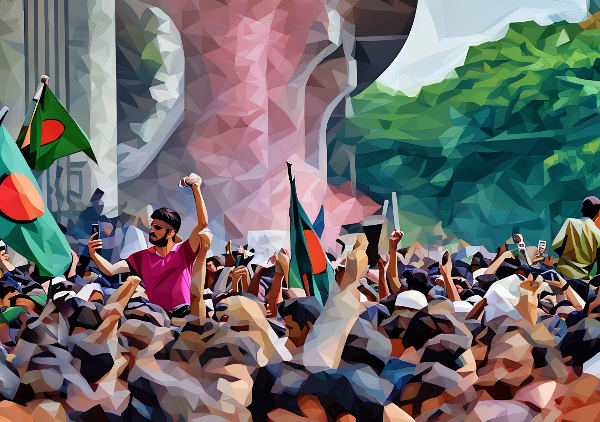
Lessons from Gwangju: Solidarity, justice, and the path forward
My visit to South Korea included insightful meetings with Gwangju city council members, National Assembly representatives, and civil society leaders. They expressed heartfelt solidarity with Bangladesh and offered valuable advice on our path toward justice and healing.
They emphasized the crucial need for a Fact-Finding Commission to uncover the complete truth about the July Revolution, stressing that reconciliation and justice depend on a thorough understanding of the events.
This resonated deeply, as South Korea's experience with the Gwangju Uprising demonstrated the importance of truth-seeking as a prerequisite for healing.
They also urged us to meticulously document our revolution, preserving the voices and stories of those who lived through it.
This ensures that the narrative of the July Revolution remains in the hands of those who experienced it, safeguarding it from distortion or erasure. These stories will serve as a powerful testament to the resilience and courage of those who fought for change.
They also stressed the importance of youth engagement in shaping a democratic future, recognizing their vital role in carrying forward the ideals of the revolution.
Their suggestion to connect with international figures who champion human rights and democracy resonated deeply.
Building bridges with South Korea and other nations through collaborative efforts can strengthen our shared commitment to these values and provide crucial support on our journey.
My time in South Korea was definitely a profound and transformative experience. The parallels between the Gwangju Uprising and the July Revolution highlighted the universality of the fight for justice and freedom.
Witnessing their journey provided valuable insights and renewed hope for a future where Bangladesh can achieve true democracy.
The 2024 revolution offers Bangladesh a unique opportunity to redefine itself and shape its own future. This opportunity comes with the responsibility to honor the sacrifices made, pursue justice, and uphold the hard-won principles of democracy.
South Korea's journey reminds us that true democracy requires confronting the past and actively working towards healing and reconciliation. It demands courage, resilience, and an unwavering commitment to truth and justice.
Inspired by these lessons, we must move forward with determination and unity. Together, we can build a future that honors the spirit of the July Revolution, ensuring that the sacrifices made were not in vain and that the dream of a free and just Bangladesh lives on.
—
Samia
Akhter is a law graduate student at the University of Dhaka and served as one
of the coordinators for the Students Against Discrimination (SAD) Movement

